The Ultimate Guide to Choosing the Perfect Store Front Glass Door for Your Business
Choosing the perfect store front glass door is a crucial decision that can significantly impact your business's image and accessibility. This guide aims to provide you with insightful strategies and tips on selecting the ideal store front glass door that aligns with your brand’s aesthetics and functional requirements.
 From understanding different glass types and designs to considering security features and energy efficiency, we will explore the key factors that should influence your choice. Furthermore, we’ll discuss common mistakes to avoid and the latest trends in store front glass door designs, ensuring your entryway enhances both the customer experience and the overall appeal of your retail space.
With the right information at your fingertips, you'll be well-equipped to make an informed decision that not only invites customers in but also reflects the quality and commitment of your business.
From understanding different glass types and designs to considering security features and energy efficiency, we will explore the key factors that should influence your choice. Furthermore, we’ll discuss common mistakes to avoid and the latest trends in store front glass door designs, ensuring your entryway enhances both the customer experience and the overall appeal of your retail space.
With the right information at your fingertips, you'll be well-equipped to make an informed decision that not only invites customers in but also reflects the quality and commitment of your business.
Understanding the Importance of a High-Quality Store Front Glass Door
A high-quality store front glass door is more than just a functional entry point; it serves as a crucial element in your business's overall branding strategy. The first impression potential customers have of your establishment begins with its exterior, and a well-crafted glass door can convey professionalism, attention to detail, and a welcoming atmosphere. Clear, sturdy glass allows natural light to flood the interior, making the space feel open and inviting, which can significantly enhance foot traffic and customer interest.
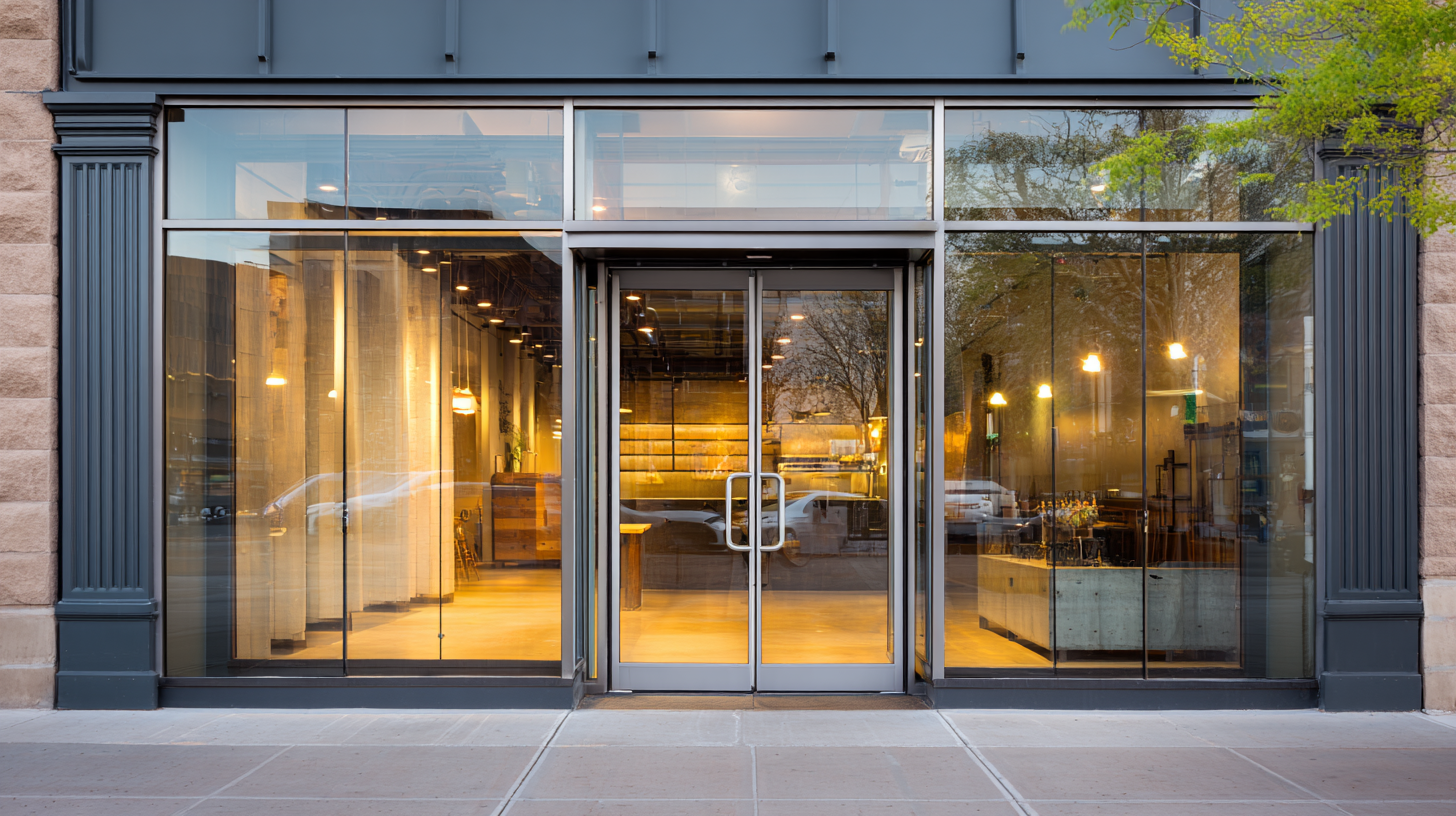
Additionally, investing in a premium store front glass door can improve security and energy efficiency. Modern glass doors often come with advanced locking mechanisms, providing an added layer of protection for your business. Many options also feature energy-efficient glazing that helps regulate indoor temperatures, reducing heating and cooling costs. By prioritizing quality in your store front design, you not only elevate the aesthetic appeal of your business but also contribute to its long-term sustainability and customer satisfaction.
Key Features to Consider When Selecting the Ideal Glass Door
When selecting the ideal glass door for your storefront, several key features should be at the forefront of your decision-making process. First and foremost, consider the material and thickness of the glass. Tempered glass is a popular choice due to its durability and safety features; it’s less likely to shatter upon impact and can withstand varying weather conditions. Additionally, you should evaluate the frame material; aluminum frames are lightweight and resistant to rust, while wood offers a more classic aesthetic but requires more maintenance.
Another critical aspect to ponder is the door's energy efficiency. Look for doors with double glazing, which can help regulate indoor temperatures by preventing heat loss and reducing energy bills. Ensure that the door has a good seal when closed, as this will contribute to insulation and comfort for your customers. Lastly, don’t overlook the importance of style and design; the glass door should align with your brand's identity, whether you aim for modern sleekness or traditional charm. Balancing these features will help ensure that you select a glass door that not only enhances curb appeal but also meets practical needs.
The Key Features to Consider When Selecting the Ideal Glass Door
Exploring Different Styles and Designs for Your Business's Aesthetic
When it comes to selecting the perfect store front glass door, the aesthetic appeal plays a crucial role in attracting customers. Various styles and designs can not only enhance the exterior look of your business but also reflect your brand's identity. A recent study by the National Association of Home Builders revealed that 70% of consumers are influenced by a store's exterior when deciding whether to enter. Therefore, investing in a stylish and eye-catching glass door can significantly boost foot traffic.
One popular option is the bi-fold glass door, known for its ability to create an open and inviting atmosphere. These doors are not only functional but also provide a seamless transition between indoor and outdoor spaces. Another trend is the use of frosted or tinted glass, which offers privacy while still allowing natural light to flow in. According to a report by the American Institute of Architects, businesses that prioritize natural light experience a 20% increase in customer engagement.
**Tips:** Consider the overall aesthetic of your business when choosing a door style; it should complement your brand. Additionally, don't overlook the importance of high-quality materials for durability and security. Lastly, ensure that your selection meets local building codes and safety regulations to safeguard your investment.

Evaluating Material Options for Durability and Security in Glass Doors
When choosing the perfect storefront glass door for your business, evaluating material options is crucial for ensuring both durability and security.
Tempered glass is a popular choice due to its strength; it is heat-treated to withstand impact and resist breakage, making it ideal for high-traffic areas. Additionally, laminated glass offers enhanced security, as it consists of multiple layers bonded together to prevent shattering upon impact. This characteristic not only provides physical protection but also acts as a deterrent against break-ins.
Incorporating other material options can further enhance the performance of storefront glass doors. For example, frames made from aluminum or stainless steel provide added structural support and resistance against rust and weather elements. Some businesses may also consider using insulated or double-glazed glass, which enhances thermal efficiency while maintaining visibility and aesthetics. By carefully examining these material choices, business owners can select a glass door that not only complements their storefront but also safeguards their investment against potential threats.
The Impact of Energy Efficiency on Your Store Front Glass Door Choice
When selecting a storefront glass door for your business, energy efficiency should be a top priority. An energy-efficient door not only helps to regulate indoor temperatures but also reduces heating and cooling costs. By choosing the right glass type, such as Low-E (low emissivity), you can significantly minimize heat transfer, ensuring your store remains comfortable year-round.
**Tips:** Look for doors with a high Insulating Glass Unit (IGU) rating, as these provide superior thermal performance. Consider doors that feature triple glazing for enhanced insulation, especially if your business is located in a region with extreme weather conditions.
Additionally, remember that frames also play a crucial role in energy efficiency. Opt for frames that are thermally broken, as they offer better insulation compared to traditional materials. This choice not only enhances your store's energy performance but also contributes to a modern, appealing aesthetic that can attract customers.
**Tips:** Research energy codes and local regulations to ensure compliance while maximizing efficiency. Evaluate potential doors for their U-factor and Solar Heat Gain Coefficient (SHGC) ratings to make an informed decision.
The Ultimate Guide to Choosing the Perfect Store Front Glass Door for Your Business
| Feature | Impact on Energy Efficiency | Material Options | Estimated Cost |
|---|---|---|---|
| Low-E Glass | Reduces UV and infrared light, minimizing heat gain. | Glass | $300 - $800 |
| Double Glazing | Improves insulation, maintaining temperature stability. | Glass, Argon gas | $400 - $1200 |
| Frameless Design | Enhances natural light, reducing the need for artificial lighting. | Tempered glass | $500 - $1500 |
| Energy Star Rated | Designed to meet strict energy efficiency guidelines. | Various materials | $600 - $1500 |
| Solar Control Glass | Minimizes solar heat gain and glare. | Glass | $400 - $1000 |
Related Posts
-

What is the Significance of Store Front Glass Doors in Modern Retail设计
-
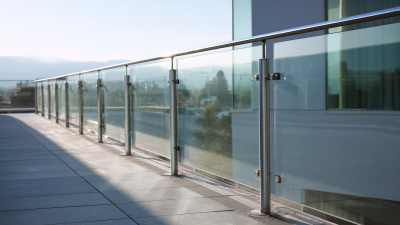
The Ultimate Guide to Choosing the Right Glass Handrail Systems for Your Home
-
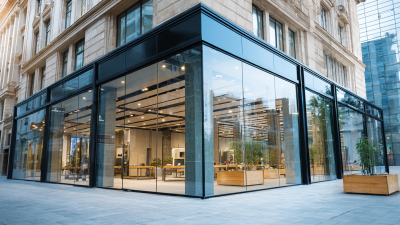
What Makes Storefront Glass Essential for Modern Retail Spaces
-
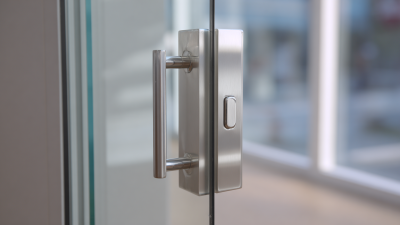
Exploring Innovations in Sliding Glass Door Handles at the 138th Canton Fair 2025
-
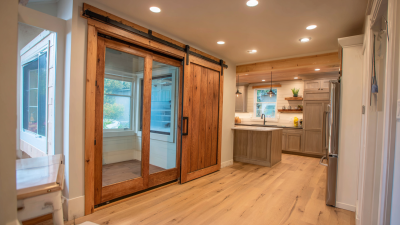
What is the Innovation Behind Sliding Door Systems
-

Ultimate Guide to Choosing the Perfect Store Front Glass Door for Your Business
